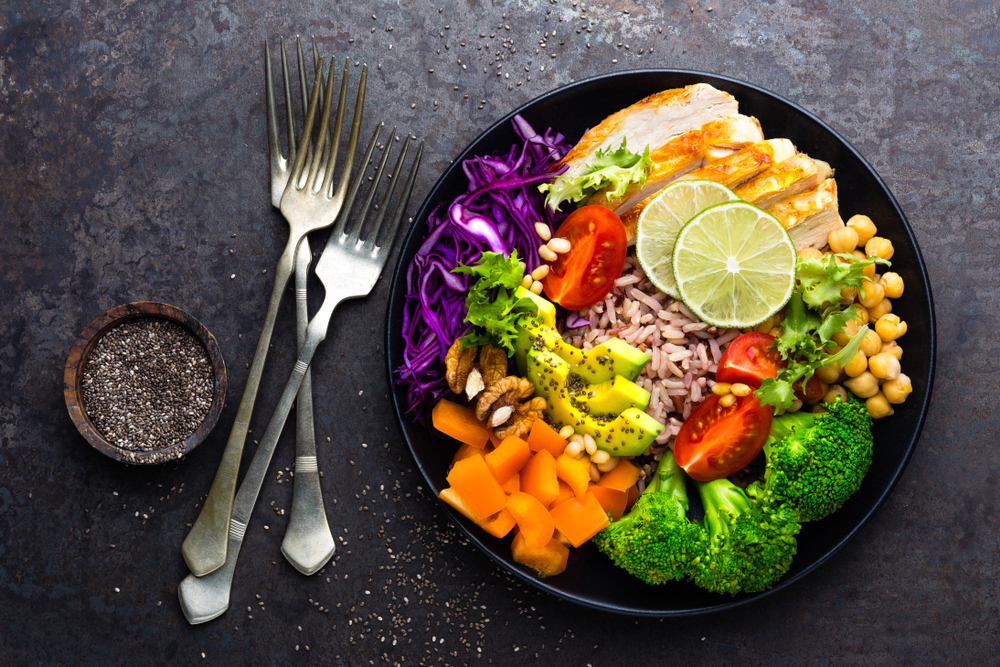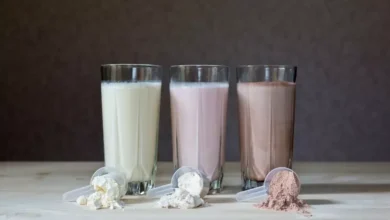Simplify Health: 15 Essential Meal Prep Foods for Healthy Eating All Week Long
Essential Meal Prep Foods

In the daily rush, maintaining a healthy diet is a constant challenge. This is where meal prep (meal preparation) becomes a powerful ally. However, more than planning, the secret lies in stocking the pantry and fridge with Essential Meal Prep Foods—versatile, nutritious ingredients that are easy to store.
Healthline, based on nutritionist advice, compiled a list of 15 staple foods that serve as the building blocks for creating countless meals, eliminating daily kitchen stress and ensuring the intake of high-quality nutrients.
This practical guide details these 15 pillars of functional nutrition, organized by function (proteins, carbohydrates, and extras), explaining their health benefits and offering preparation suggestions to transform your eating routine.
LEIA TAMBÉM:
- Exercício rápido para aliviar a dor lombar: movimentos simples que funcionam
- Correr ajuda a perder peso? Como começar e progredir sem perder o fôlego
Siga nossa PÁGINA
The Base Proteins: Repair and Satiety
Having high-quality, easy-to-prepare proteins is fundamental for any meal prep plan, as they are responsible for satiety and muscle repair.
1. Chicken Breast
It is a global favorite for a reason: versatility. Boneless, skinless chicken breast is a high-quality complete protein that supports the immune system and helps build muscle.
- Prep Tips: Marinate and grill large batches to use in stir-fries, sandwiches, salads, or pasta throughout the week. It can be easily frozen after cooking for future use.
2. Smoked Salmon
While fresh salmon is praised, the smoked version offers an even easier route to healthy meals, as it is already cooked and ready to eat. It contains Omega-3, essential for heart and brain health, and Vitamins A and E (antioxidants). Warning: Due to its sodium content (600–1200 mg per 100g), consumption should be moderate.
- Prep Tips: Perfect for wraps or salads, pairing well with lime, dill, or cream cheese.
3. Extra-Firm Tofu
An excellent plant-based protein. Tofu does not alter hormone levels (a persistent myth) and is potentially beneficial in preventing certain hormone-related cancers, besides providing 17 grams of protein per 3.5oz (100g) serving and over 50% of the Daily Value for calcium.
- Prep Tips: Press the liquid out and pan-fry it until delightfully crispy. It absorbs the flavor of any sauce, making it ideal for curries or Asian noodle dishes.
4. Canned Chickpeas
A true nutritional powerhouse offering 14.5 grams of protein and 12.5 grams of fiber per cup. Additionally, it is high in manganese (bone health) and folate.
- Prep Tips: Drain and use directly in soups, stews, or mash them with spices to make hummus or fillings for vegetarian wraps.
Carbohydrates and Grains: Energy and Fiber
Carbohydrates are the main source of energy. Choosing whole grains and tubers is crucial to ensure sustained energy release and a high fiber content.
5. Quinoa
A versatile and nutritious “grain” that offers fiber (promotes satiety and gut health) and a substantial amount of protein. It is also rich in magnesium, manganese, and copper.
- Prep Tips: Cook in broth (bone broth, for example) instead of water for a richer flavor. Use as a base for grain salads, in stir-fries, or as a substitute for rice.
6. Sweet Potatoes
With an earthy flavor that pairs well with sweet spices (cinnamon, nutmeg, ginger), sweet potato is rich in potassium (essential for nerves and muscles) and soluble fiber (lowers cholesterol and stabilizes blood sugar).
- Prep Tips: Bake them whole as a side dish or dice them to add to curries, tacos, or salads.
7. Red Lentils
A member of the pulse family with a host of health benefits, including a high mix of fiber and antioxidants, which are heart-health friendly. They are surprisingly high in protein (46g per dried cup).
- Prep Tips: They cook relatively quickly (20–25 minutes). They are perfect for daal (Indian stew), soups, or as a high-fiber topping for baked potatoes.
8. Quick-Cooking Oats
A superfood for breakfast. The soluble fiber in oats has been linked to reduced cholesterol, and their beta-glucan can help stabilize blood sugar.
- Prep Tips: Just 2 minutes in the microwave. Serve with various toppings (fruit, peanut butter, seeds) to ensure “no two bowls need ever be alike.”
9. Whole Wheat Spaghetti
A solution for last-minute dinners. The whole wheat version offers a sizable dose of fiber, which regulates digestion and may help with healthy weight maintenance.
- Prep Tips: Use as a base for Mediterranean-inspired pasta (sun-dried tomatoes, olives) or with pesto and cannellini beans.
Flavorings and Antioxidants: The Healthy Finishing Touch
These often-underestimated ingredients are crucial for adding flavor, protecting cells, and optimizing digestion.
10. Extra-Virgin Olive Oil (EVOO)
The pillar of the Mediterranean diet. Its monounsaturated fatty acids (MUFAs) are associated with a reduced risk of overall mortality and cardiovascular diseases.
- Prep Tips: Use it not only for cooking but as a base for dipping sauces, on crostini, or for dressing salads and roasted vegetables.
11. Frozen Spinach
A guaranteed way to add healthy, easy-to-use greens to your meals. They are famous for their high levels of iron (blood oxygenation) and antioxidants (lutein and zeaxanthin, which support eye health).
- Prep Tips: Use it directly in smoothies, spinach lasagna, quiches, or frittatas.
12. Grape Tomatoes
Small and practical, they reduce the need for slicing. They contain lycopene, an antioxidant famous for its role in reducing the risk of heart disease and cancer, as well as Vitamins C and K, and folate.
- Prep Tips: Add directly to salads, pizzas, or pasta. They can be roasted with olive oil, salt, and pepper to last up to two weeks in the fridge.
13. Onions
They provide a savory flavor boost to almost any recipe. Some research shows that onions have antimicrobial properties, helping to defend against infections.
- Prep Tips: Sauté them in a little olive oil as the foundation for rice pilaf or soups, or caramelize them to add sweetness to roasted vegetables.
14. Bone Broth
While not a “miracle food” as some claim, it is a versatile and nutritious base. It contains collagen, glucosamine, and chondroitin, which may help reduce joint pain.
- Prep Tips: Use it to create hearty soups, savory sauces, or as an alternative to water for cooking rice and quinoa. It can be frozen in ice cube trays for small portions.
15. Apples
One of the apple’s top selling points is its longevity (it can last up to 6 weeks in the fridge). It contains Vitamin C, potassium, fiber, and antioxidants like quercetin, associated with decreased BMI and cardiovascular disease risk.
- Prep Tips: A lunchbox staple. Dice them to add to oatmeal, fry them to complement pork chops, or use them in quick fruit salads.
Conclusion
Having a kitchen stocked with these 15 Essential Meal Prep Foods removes the mental gymnastics of daily meals and ensures your body receives whole, healthy nutrients. By organizing your pantry and fridge with these versatile proteins (chicken, salmon, tofu, chickpeas), smart carbohydrates (quinoa, sweet potato, lentils, oats), and healthy flavorings (olive oil, spices), meal prep becomes simple.
The key is ease. With these basic ingredients always available, you can toss together nutritious meals with minimal effort, allowing you to focus on health and well-being all week long.

Hello! My name is Alan Teixeira and I am passionate about helping people live healthier, more balanced lives. From mindful eating to daily habits that promote physical and mental well-being, I believe that small, consistent changes can lead to powerful transformations.
I created this blog to share practical tips, reliable information, and thoughtful insights that can inspire you to take better care of yourself—with balance, mindfulness, and positivity.
If you are looking to improve your health, nourish your body, and build a lighter, more fulfilling routine, you are in the right place. Welcome!





